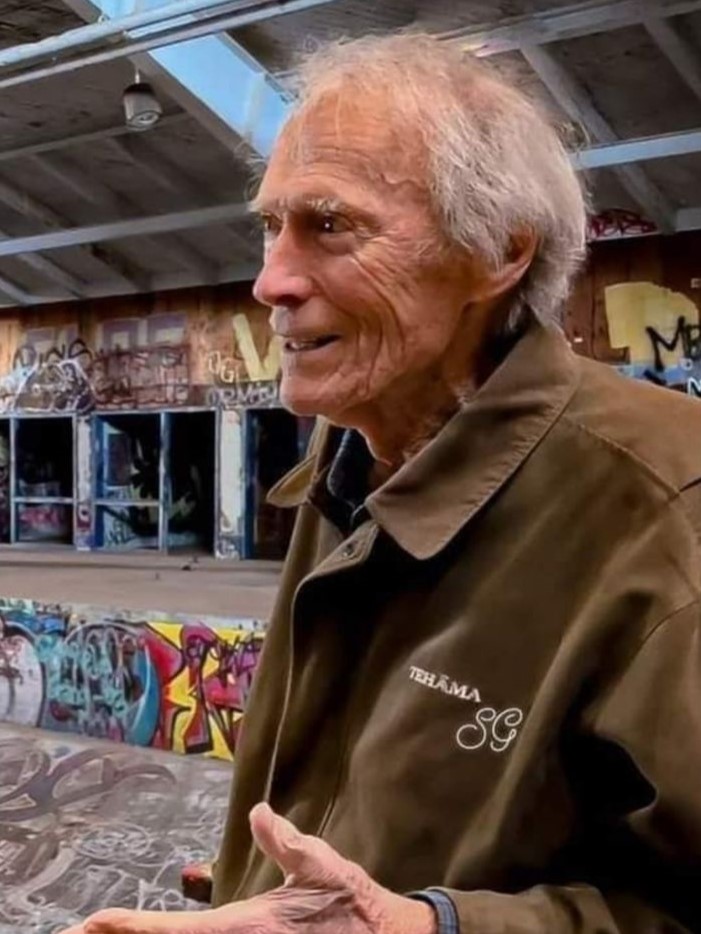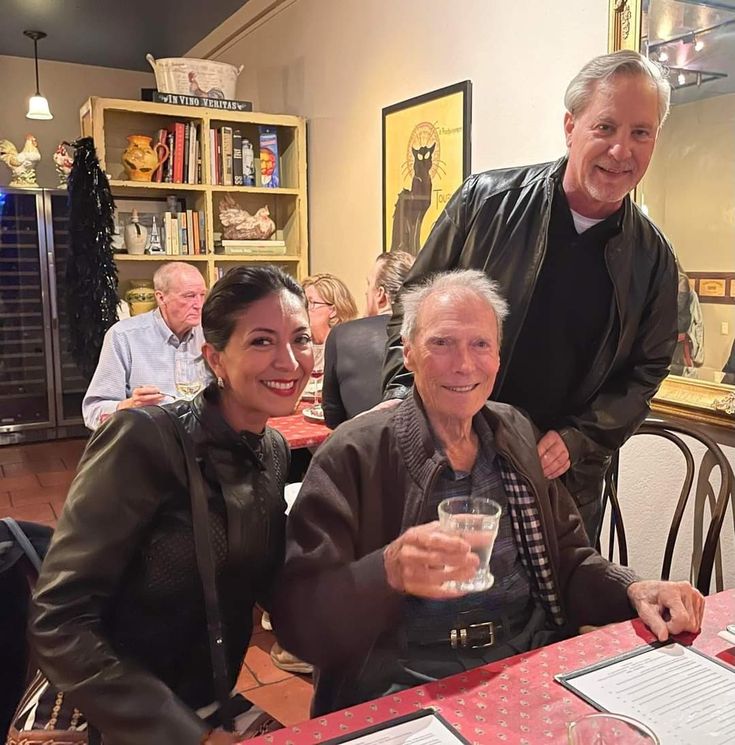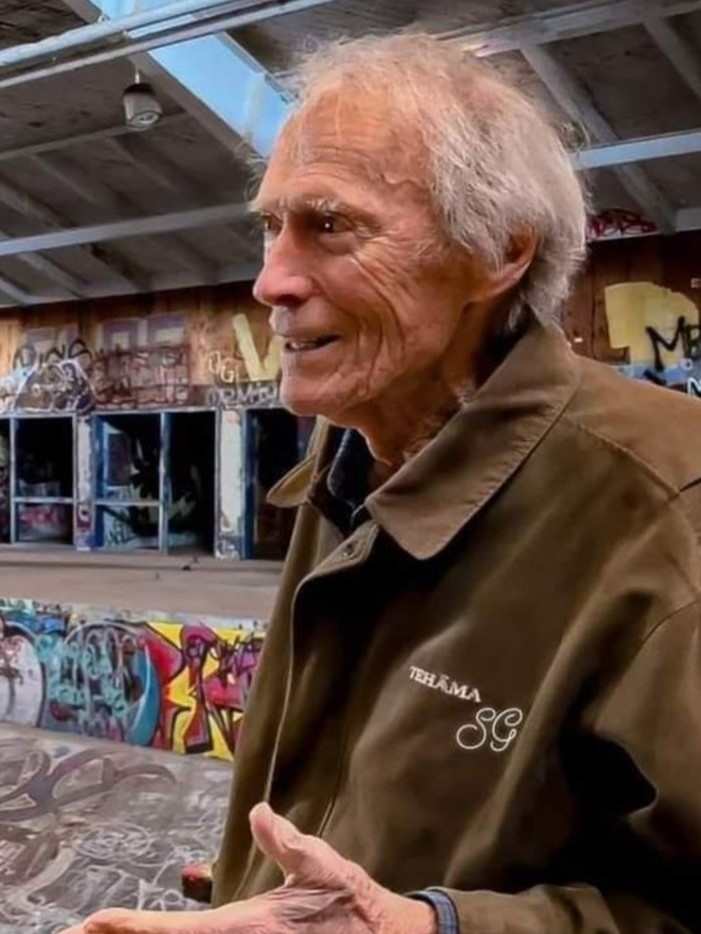Clint Eastwood, the iconic actor, director, producer, and composer, remains a towering figure in the world of cinema. As of today, he’s still going strong at 94, with his 95th birthday just around the corner in May! From his early days on the small screen in Rawhide to his groundbreaking roles in the Dollars Trilogy and Dirty Harry films, Eastwood has left an indelible mark on the entertainment industry.
He first captured the public’s attention with his portrayal of the mysterious, no-nonsense “Man with No Name” in Sergio Leone’s Spaghetti Westerns in the 1960s. Those films not only established Eastwood as a global star but also solidified his distinctive presence—his quiet intensity, weathered look, and sharp, memorable dialogue. The character of Harry Callahan in Dirty Harry (1971) further cemented him as an action icon, with his famous line, “Do you feel lucky, punk?” still echoing in the collective memory of movie fans everywhere.
But Clint Eastwood is much more than just his tough-guy roles. As a director, his work speaks for itself, with masterpieces like Unforgiven (1992), which won him multiple Academy Awards, including Best Director and Best Picture. His skill as a filmmaker, combined with his acting prowess, has led to an incredible career that spans over six decades. His ability to bring authenticity and emotional depth to his characters—whether in the gritty drama Million Dollar Baby (2004) or the harrowing American Sniper (2014)—has earned him immense respect as one of Hollywood’s greatest directors.
Despite his immense success, Eastwood has remained a private individual, rarely seeking the spotlight outside of his work. His personal life has had its share of ups and downs, but he’s always been fiercely independent. Having raised multiple children with different partners, Clint remains a devoted family man while also keeping a busy career that never quite seems to slow down. His recent works—such as The Mule (2018) and Cry Macho (2021)—prove that even as he nears 95, Eastwood’s passion for storytelling and filmmaking is undiminished.
Clint Eastwood’s influence reaches far beyond the silver screen. His dedication to his craft, his resilience in the face of personal and professional challenges, and his understated yet powerful presence have made him a living legend. And as he approaches 95, it’s impossible not to marvel at the incredible legacy he has built, both on and off the screen. He truly is the one and only Clint Eastwood! 💖📽

Clint Eastwood is an absolute legend whose career continues to inspire and captivate audiences around the world. As he edges closer to his 95th birthday in May, it’s clear that his influence on the film industry and popular culture will live on for generations to come. What makes Eastwood so extraordinary isn’t just his longevity, but his unwavering dedication to his craft, his versatility, and the way he’s shaped and reshaped his own legacy over the decades.
Eastwood’s career began in the 1950s, but it was the 1960s that truly catapulted him into stardom. His role as the laconic, anti-heroic “Man with No Name” in Sergio Leone’s Dollars Trilogy—A Fistful of Dollars (1964), For a Few Dollars More (1965), and The Good, the Bad, and the Ugly (1966)—changed the landscape of Western films forever. The success of these films made Eastwood a household name and revolutionized the genre, ushering in a new era of Westerns with a grittier, more morally ambiguous tone.
Eastwood didn’t just stick to one genre, though. His versatility as an actor saw him take on diverse roles in films like Where Eagles Dare (1968), Play Misty for Me (1971), and The Outlaw Josey Wales (1976). His ability to bring depth to roles that often seemed one-dimensional in other hands set him apart from many of his peers. He became known for playing characters who were tough, yet human; capable of violence but also showing moments of vulnerability.
As his career evolved, Eastwood transitioned into directing, an area where he would truly shine and create some of his most critically acclaimed works. With films like Unforgiven (1992), Mystic River (2003), and Gran Torino (2008), Eastwood proved that he was just as adept behind the camera as he was in front of it. In Unforgiven, a film about redemption and the human cost of violence, Eastwood brought a powerful depth to the Western genre that forever changed how we view it. The film’s critical success, including multiple Academy Awards, affirmed his skill as a storyteller and filmmaker.
His 2004 drama Million Dollar Baby, a gritty and emotional exploration of boxing, fate, and human connection, not only earned him yet another Academy Award for Best Director but also made him the first person ever to win the Oscar for both Best Director and Best Picture in the same year for two different films (he had also produced Million Dollar Baby). This film solidified Eastwood’s reputation not just as a star, but as a master filmmaker, capable of tackling complex human emotions and themes with restraint and sensitivity.
Eastwood’s work is also notable for its exploration of American identity. Films like American Sniper (2014), which tells the story of Navy SEAL sniper Chris Kyle, and Flags of Our Fathers (2006), which examines the lives of the men behind the famous photograph from the Battle of Iwo Jima, showcase his keen interest in exploring the experiences of soldiers and the complexities of war, heroism, and national pride. These films, along with others like Letters from Iwo Jima (2006), demonstrate Eastwood’s ability to blend personal storytelling with larger historical and cultural themes.
Despite the high-profile nature of his career, Eastwood has remained remarkably private, rarely engaging in tabloid drama or public feuds. His public persona reflects the stoic, self-reliant characters he often portrays: determined, unwavering, and focused on what really matters. Even in his personal life, Eastwood’s approach has always been to keep things low-key, letting his work speak for itself.
In recent years, Eastwood has shown that age has done nothing to dull his artistic instincts. His 2018 film The Mule, in which he stars as a 90-year-old drug mule, is a reflection of his own life in many ways—still pushing forward, still taking risks, and still showing the world that age is no barrier to greatness. His 2021 film Cry Macho, a Western drama about an aging rodeo star who embarks on a journey to retrieve a young boy from Mexico, was another testament to his endurance as a filmmaker and actor, even at 91 years old.

In 2023, Clint Eastwood’s contribution to cinema was honored with tributes and retrospectives as the film industry celebrated his decades-long legacy. Even though his future projects remain a mystery, Eastwood has built a body of work that guarantees his place in the pantheon of great filmmakers and actors, ensuring that his influence will continue to be felt for many years to come.
Looking at Clint Eastwood’s life and career, it’s evident that he embodies the spirit of resilience and reinvention. He’s always followed his own path, staying true to his values while constantly evolving. His body of work is a masterclass in storytelling, showing us that cinema is not just about entertainment—it’s about exploring the human experience in its many forms.
As Clint Eastwood approaches his 95th birthday, we can’t help but reflect on the incredible contributions he has made to film and culture. His legacy as one of Hollywood’s most enduring and influential figures is cemented forever. From his unforgettable performances to his impeccable direction, Clint Eastwood truly is the one and only, a legend whose impact on cinema will never be forgotten. 💖📽
Videos more detail :


